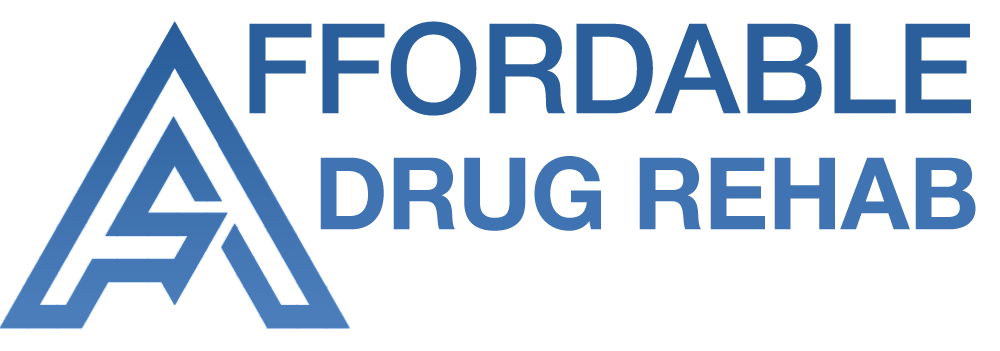Give us a call1 (888) 850-3656
What are the most accessible affordable drug rehab options for residents in North Carolina?
For residents in North Carolina, our Affordable Drug Rehabs network offers a variety of cost-effective treatment programs, including outpatient, inpatient, and partial hospitalization options. We believe that treatment should be accessible to everyone, and strive to provide the highest standard of care. Our sliding scale payment options make our services affordable for different income levels, and we also accept Medicaid which alleviates much of the financial burden for eligible families. We understand that addiction affects more than the individual; it impacts entire communities, which is why we place such emphasis on making recovery accessible to as many North Carolinians as possible.
What common misconceptions do people have about affordable drug rehab centers, and how does your organization address these concerns?
One common misconception is that affordable drug rehab centers compromise on quality of care. At our organization, we debunk this myth by maintaining exacting standards for our services. With evidence-based therapies, experienced staff, and personalized care plans, we ensure that affordability does not mean a reduced level of care. We do this by optimizing our resources, utilizing state funding effectively, and by ensuring our treatment modalities are both cost-effective and clinically proven to support recovery.
How are treatment plans at Affordable Drug Rehabs tailored to address the specific needs of teenagers in North Carolina?
Teenagers face unique challenges in their recovery process, which is why our treatment plans are highly individualized. We integrate modalities like cognitive-behavioral therapy and motivational interviewing, which resonate well with younger individuals. Furthermore, we recognize the significance of addressing not just the addiction, but its underlying emotional and psychological triggers. We involve families in the healing process to ensure a supportive environment at home, which is crucial for long-term sobriety. Our affordable drug rehabs for teenagers provide a safe space for teenagers to reflect, engage, and grow away from the pressures and temptations that may have contributed to their substance abuse.
What measures does Affordable Drug Rehabs take to ensure continuity of care for individuals transitioning out of rehab?
Continuity of care is critical in preventing relapse, and our approach involves creating a seamless transition from treatment to the real world. We have robust aftercare programs that include alumni services, support groups, and relapse prevention strategies. This ensures that, upon leaving our facilities, individuals have an established network of support. Additionally, by staying connected with our affordable drug rehab centers in North Carolina, we can offer encouragement and guidance as they navigate the complexities of sober living in their communities.
Are there any misconceptions specific to affordable drug rehab centers in Texas that differ from those in North Carolina?
While the core misconceptions about affordable drug rehab centers are similar across states–such as questions about quality of care–Texas residents may have distinct concerns due to the size and diversity of the state. One misconception might be that affordable care isn’t widely available across such a large area. To address this, we work diligently to ensure that individuals in Texas, regardless of location, have access to affordable options. We partner with local organizations and work within community frameworks to extend our reach, making sure that no one is left without support because of where they live.
How does your organization support individuals after completing a drug rehab program in North Carolina?
Completion of a rehab program is just the beginning of the journey to recovery. Our organization provides a robust aftercare program to support individuals as they re-enter society. This includes ongoing counseling sessions, access to support groups, and regular check-ins with our medical and therapy staff. We aim to build a strong community around our graduates, giving them the resources and confidence needed to maintain their sobriety. We also encourage graduates to become mentors to others who are just starting their recovery journey, fostering a culture of mutual support and accountability.
What financial planning resources do you provide to families considering drug rehab for a loved one?
We understand the financial concerns that come with seeking treatment, which is why we provide detailed financial counseling as part of our services. Our counselors help families navigate insurance benefits, discuss sliding scale payments, and explore potential financing options that can make treatment more manageable. We believe knowledge is power, and by providing families with a clear understanding of their financial options, they can make informed decisions without compromising the quality of care for their loved ones.
Resources
- National Institute on Drug Abuse (NIDA): Offers extensive information on drug abuse, prevention, and treatment. www.drugabuse.gov
- Centers for Disease Control and Prevention (CDC): Provides data and statistics on substance abuse and associated health impacts. www.cdc.gov
- Substance Abuse and Mental Health Services Administration (SAMHSA): Contains resources for substance abuse treatment and prevention. www.samhsa.gov
- National Institutes of Health (NIH): Offers research and educational materials on health, including substance abuse and addiction. www.nih.gov
- American Psychological Association (APA): Provides information on the psychological aspects of addiction. www.apa.org
- National Association of Addiction Treatment Providers (NAATP): A nonprofit professional society of top treatment providers throughout the continuum of care. www.naatp.org
- Office of National Drug Control Policy (ONDCP): Offers federal policy information on drug abuse and its prevention. www.whitehouse.gov/ondcp/
- National Council on Alcoholism and Drug Dependence (NCADD): Offers resources on alcoholism and drug dependence. www.ncadd.org
Affordable Drug Rehab Centers in North Carolina Affordable Drug Rehabs for Teenagers Affordable Drug Rehab Centers in Texas

